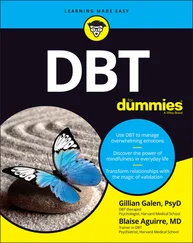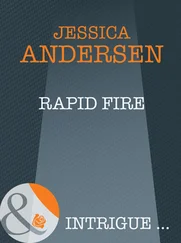“No,” Ben said solemnly.
What would pull a diplomat out of a crisis session but a crisis at home? Caitlin felt a twinge as she remembered her own father’s careful, loving attention. “The daughter?” She had heard about the shooting on the news.
Ben nodded, stared down the street, then back at the doorman.
“What’s happening with her?” Caitlin asked.
“It’s…” Ben’s mouth tightened, then he exhaled. “It’s disturbing. Cai, you’ll have to see for yourself.”
Taking her by the elbow, he walked her into the building. The concierge at the desk did not bother calling up, obviously familiar with Ben.
“They brought her in through the service elevator,” Ben said.
There were security cameras in the lobby and one in the corner of the elevator. Loose lips sink ships , Caitlin thought as they rode up to the penthouse. Ben had not spoken another word. She could not imagine what was so dire that it could not be spoken about… and had unsettled him so much that he still had not released her elbow.
The elevator door opened on a corridor that was eerily silent. There was a vacuum cleaner running in an apartment but the hallway’s thick carpet muted the sound.
But it’s more than the silence , she realized as they headed toward an apartment at the far end. There was the kind of stillness one felt at sunset in the wild, when all decent things went into their huts, tents, or burrows, and predators woke to feed. It was a strange and surprising sensation here.
On their first knock an anxious-looking woman in a red-orange sari opened the door.
“Thank you, Benjamin,” she said, but was looking at Caitlin, studying her with experienced eyes.
“Dr. O’Hara, this is Hansa Pawar, wife of the ambassador.”
“Hello,” Caitlin said as a young beagle tried to slip through the door into the hall.
“Jack London!” Mrs. Pawar snapped, and the beagle slunk back inside. The dog was low to the ground and subdued as he turned to sniffing Caitlin’s ankles. His attentions were brief, perfunctory.
Caitlin ran her hand down the dog’s back as she reached down to take her shoes off; she had spent enough time in Mumbai to know that removing shoes was the cultural norm.
Mrs. Pawar stopped her. “Don’t worry about that. Please just come with me.”
Caitlin felt another chill as the woman hurried them through a spacious room. It was filled with light from a wall of windows facing the UN building and the East River. There was a pleasant hint of jasmine tea in the air. The apartment was overflowing with artifacts—Caitlin recognized not just Hindi sculptures and Muslim painted texts, but a Sikh helmet, a Christian cross, a Georgia O’Keeffe landscape.
Ben noticed Caitlin’s wandering eyes. “Ganak calls interculturalism ‘the peace of many choices,’” he murmured to her. “He’s trying to embody it and teach it.”
Caitlin didn’t have much more time to look around before they were ushered into a bedroom, the second off a long corridor.
Though the drapes were drawn, enough sunlight filtered through for Caitlin to see that each wall was painted a different jewel color, amethyst, sapphire, emerald, and cherry opal. On a desk in the corner, an electronic photo frame flashed groups of friends laughing, smiling, hugging—in sad contrast to the girl who was unconscious in her father’s arms across the room. Urged by Mrs. Pawar’s outstretched hand, Caitlin moved slowly past her to the girl’s four-poster bed. The beagle followed and sat on the floor beside her. Ben stayed by the door.
The man looked up. “I am Ganak Pawar.”
“I’m Caitlin O’Hara,” she said gently.
“Thank you for coming,” he said, his voice cracking. “This—this is our daughter, Maanik.”
Caitlin smiled reassuringly but her attention was on the girl’s forearms, which were wrapped in gauze that was heavily spotted with blood. She sat on the bed and gently moved the girl’s arms to look under the bandages. The teenager showed no response, the limbs dead weight. The bloodstains were smeared and unusual. Cut marks were typically linear; these were S-shaped and they were fresh. Even in the subdued light, Caitlin could see blood on the girl’s fingernails.
“Maanik insisted on going to class,” the ambassador said. “She was only there an hour when she began shrieking, doing this to herself.”
“Nothing before that? No hyperventilating, faintness?”
“Her second-period teacher said she was staring, but otherwise normal,” Ganak said. “This happened in her third class. When she came home she fell asleep but awoke screaming. For a while now she has been falling asleep, waking up screaming, speaking in gibberish, then sleeping again. Our doctor said it is post-traumatic stress from the shooting.”
“Symptoms in cycles don’t fit with PTSD,” Caitlin mused, more to herself. “Did your doctor leave a prescription?”
“Yes. Kamala, our housekeeper, just picked these up.” He nodded toward pills on the night table.
There was a paper pharmacy bag, still stapled at the top. Caitlin noted the physician’s name, Deshpande, and the recipient’s name, fabricated most likely, which did not include “Maanik” or “Pawar.”
Caitlin opened the bag and retrieved a pair of amber containers. “Vasoflex. This is for insomnia and recurrent nightmares.” She looked at the other, surprised. “Risperdal. This is a potent antipsychotic.”
“That is a correct medication, yes?” Hansa asked.
“If you’re bipolar and haven’t slept for a few days,” Caitlin replied. “We don’t use it as a prophylactic, ‘just in case’ medicine. Mrs. Pawar, your doctor did come by and see her, yes?”
There was silence. He hadn’t. That was illegal in New York State. Caitlin glanced over at Ben, who gave her a cautioning look. Rules were obviously being bent here.
“That’s a potent mix to put in her body without an examination and after just a few hours,” Caitlin said.
“I am sorry,” Mrs. Pawar said, more to her daughter than to Caitlin. “We did not know what else to do.”
“It’s not your fault,” Caitlin lied, not wanting to make a bad situation worse. “But until we know the trigger, we’re not going to give her these.”
“Dr. O’Hara, we are watched,” the ambassador said unapologetically. “Our doctor is also with the United Nations. He keeps a log. Confidentiality means nothing in diplomacy; word would spread. I’m afraid the delegations will see my distraction as a potential weakness and press for advantage, or worse. There is still a stigma against mental illness in both India and Pakistan. If anyone were to find out she was receiving psychiatric treatments—”
“Sir, there is no illness if a situation is treated.”
“That is a technical distinction,” the ambassador said. “I know it is difficult for Americans to understand the concept of family shame, and though Hansa and I do not subscribe to the idea, many still do.”
“I do understand and there is no need to explain or apologize—”
“But there is,” he interrupted. “I am in a delicate position. Accusations of evil spirits are still a quite common response to mental illness in both countries. If her condition is known—in fact, when her condition is known, as I am sure we have only a week, two at most, before discovery—I could be removed from the negotiations, Dr. O’Hara, or either side could use it as an excuse to leave the negotiating table and turn this matter over to their military forces. A doctor’s visit to my home could be used to prove not just that I am incapable of mediating, but that the entire negotiation process is forfeit.”
“We needed a caregiver no one knows,” Ben said. “That’s why I called you.”
Читать дальше












